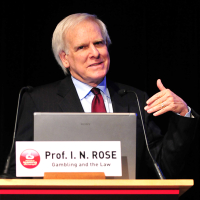 When people want something, businesses arise to fill the demand. How much more so when the activity, online poker, is not even clearly illegal?
When people want something, businesses arise to fill the demand. How much more so when the activity, online poker, is not even clearly illegal?
If the commercial goods or services are not legal, then by definition, the organizations will be criminal. Prohibition created modern organized crime, by outlawing alcoholic beverages.
When Prohibition was repealed, organized crime turned to things people wanted but could not get legally: prostitution, drugs and gambling.
When legal gambling began to spread, with insufficient safeguards to keep out the bad guys, organized crime used its experience to infiltrate.
Over the years and around the world, governments realized they had few options. The only way to completely outlaw gambling would be to crack down on players almost as hard as operators. This is not politically possible in a democracy.
Since prohibition does not work, the next best choice is to legalize gambling and put in strict regulations.
The federal government of the United States has decided to ignore these lessons of history and take the worst aspects of the choices available.
Every action by the federal government makes it more difficult for it to go after the next operator. The UIGEA, rammed through by the failed politician Bill Frist (R.-TN), scared all of the publicly traded gaming companies out of the U.S. market. Then prosecutors went after payment processors, making it more difficult for players to find legitimate ways to send their money to betting sites.
Now the feds have seized .com domain names and charged operators with bank fraud. So, gaming sites are switching to .eu and .uk, and cutting off all physical contact with the U.S. Even the present American operators can’t be extradited, so what hope is there for the DoJ to bring future foreign operators here to stand trial?
The criminal indictment against PokerStars, Full Tilt, Absolute and their founders, was unsealed by the U.S. Attorney for New York on April 15. Why now?
Maybe this just happened to be when the cases came together, when investigators had verified all the information about bank accounts they got almost exactly a year before. Daniel Tzvetkoff was arrested in April 2010, apparently turned in by these very same websites for embezzling tens of millions of dollars while doing payment processing.
So, maybe it was merely a coincidence that recent developments had given Internet poker an air of respectability, a feeling that legalization was inevitable. Nevada regulators approved Caesars Entertainment’s partnership with 888, a company that used to take bets from the U.S. Steve Wynn upped the stakes by announcing a joint venture with PokerStars, which was still accepting American poker players. The Nevada Assembly Judiciary Committee approved a bill to regulate online poker. And the District of Columbia actually made it legal.
The DoJ has been waging a war of intimidation against Internet gambling for years, successfully scaring players, operators, payment processors and affiliates into abandoning the American market. Lacking the two essentials to any prosecution – a statute that clearly makes the activity illegal and a defendant physically present in the U.S. – the feds have announced showy legal action against easy targets about every other year.
Online poker is not an easy target, since a federal Court of Appeal ruled the Wire Act is limited to bets on sports events. And tricking financial institutions into processing poker payments seems a technicality, especially since the banks made millions without ever facing any criminal charges or even paying a penny in fines. Talk about a victimless crime!
But getting a Utah bank to agree to process gambling transactions in return for a $10 million investment is an easier case, if true. The bank was so small that the officer and part-owner who allegedly arranged the deal, asked for, and received, only $20,000 for his “bonus.”
Even if there was a bribe, the feds are still going to have to prove that the poker was illegal. Since the Wire Act won’t work, prosecutors used 18 U.S.C. 1955, which makes it a federal felony if five or more people do more than $2,000 in business a day in violation of state gambling laws. The indictment relies on “New York Penal Law 225 and 225.05 and the laws of other states.” There is an obvious problem with using a state misdemeanor to charge federal felonies against foreign corporations licensed by foreign countries.
The DoJ also included a “thank you” to the Washington State Gambling Commission, indicating that the DoJ is probably going to piggyback on that state’s 2006 law outlawing all Internet gambling, as well. At least Washington state makes Internet gambling a felony.
Still, there are problems. State laws are presumed not to reach beyond their borders. And even if Internet poker is illegal in that state, it is quite a leap to seize domain names for the entire country and threaten bank accounts in places like Panama.
The only state with a law better than Washington’s is Nevada, because it expressly says it reaches beyond the borders of the state. But basing this attack on Internet poker on Nevada law would look like it was motivated by the landbased casinos. After all, who are the big winners here?
The operators will never stand trial, unless they voluntarily return to the U.S. or make some other mistake. The only U.S. extradition treaty I have found that covers illegal gambling is with Hong Kong. Calling it bank fraud won’t work, since the defendants can show their local courts that it is based on gambling. And the activity must be illegal in both countries. No nation will extradite an individual to be tried for the very activity that that nation licenses.
But what is the federal government accomplishing with going after foreign licensed poker operators?
The DoJ is raking in lots of dough for itself. For example, it received $405 million from PartyGaming and one of its founders, without even filing any criminal charges. And Party Poker had pulled out of the U.S. years earlier.
Certainly the prosecutors are scaring a lot of people and making it difficult for average citizens to even get their money to a foreign site, let alone place and collect a bet. But when the public relations campaign turned against it, the DoJ quickly backed down.
The DoJ’s seizure of .com names around the world, even in countries where online poker is 100% legal, led to international outrage. It also creates a dangerous precedent. Can an Islamic country, which outlaws alcohol, seize the worldwide domain names of every retailer that advertises beer or wine?
And the DoJ made it nearly impossible for players to get their deposits back. Even in the U.S., there is no federal law against merely playing poker on the Internet.
Five days after Black Friday, the DoJ announced that an agreement had been reached with PokerStars and Full Tilt Poker. The companies will be permitted to operate money games outside of the U.S., which they always had the legal right to do anyway. American players will be able to go to the .com sites and get their deposits back.
The problem for the DoJ is that prohibition is not regulation. Getting rid of publicly traded operators created a vacuum that was quickly filled by companies whose owners were difficult to trace. Scaring away well-known poker names means that newcomers, some of whom will undoubtedly be sleazy, will take their places. If the multi-billion-dollar U.S. online poker market becomes too hot for licensed companies, operators without any licenses, who won’t even reveal what country they are in, will be glad to run the games.
Meanwhile, like a raid by Elliot Ness on bootleggers and speakeasies during Prohibition, there are now wonderful opportunities for individuals you would not want to meet in a dark alley.
Unless, of course, Americans are actually going to stop playing poker on the Internet.
Republished with permission © Copyright 2011, I. Nelson Rose, Prof. Rose is recognized as one of the world’s leading experts on gambling law, and is a consultant and expert witness for governments and industry. His latest books, Internet Gaming Law (1st and 2nd editions), Blackjack and the Law and Gaming Law: Cases and Materials, are available through his website, www.GamblingAndTheLaw.com.


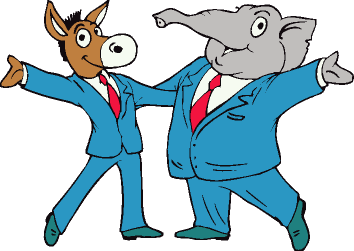 Since Black Friday, the
Since Black Friday, the 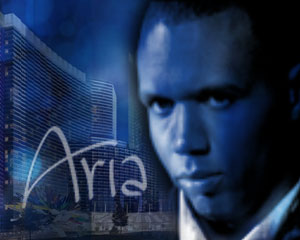 A few days back Daniel Negreanu made an interesting tweet on his twitter account @kidpoker. ‘Pretty amazing that Bellagio lost ALL of its hi limit action. Players banded together and moved the game to Aria due to poor treatment.’ This caused quite a stir in the poker community since Bobby’s Room in the Bellagio used to be the home of the high stakes action in Las Vegas since it opened. What’s wrong with the Bellagio and what is the Aria anyway?
A few days back Daniel Negreanu made an interesting tweet on his twitter account @kidpoker. ‘Pretty amazing that Bellagio lost ALL of its hi limit action. Players banded together and moved the game to Aria due to poor treatment.’ This caused quite a stir in the poker community since Bobby’s Room in the Bellagio used to be the home of the high stakes action in Las Vegas since it opened. What’s wrong with the Bellagio and what is the Aria anyway?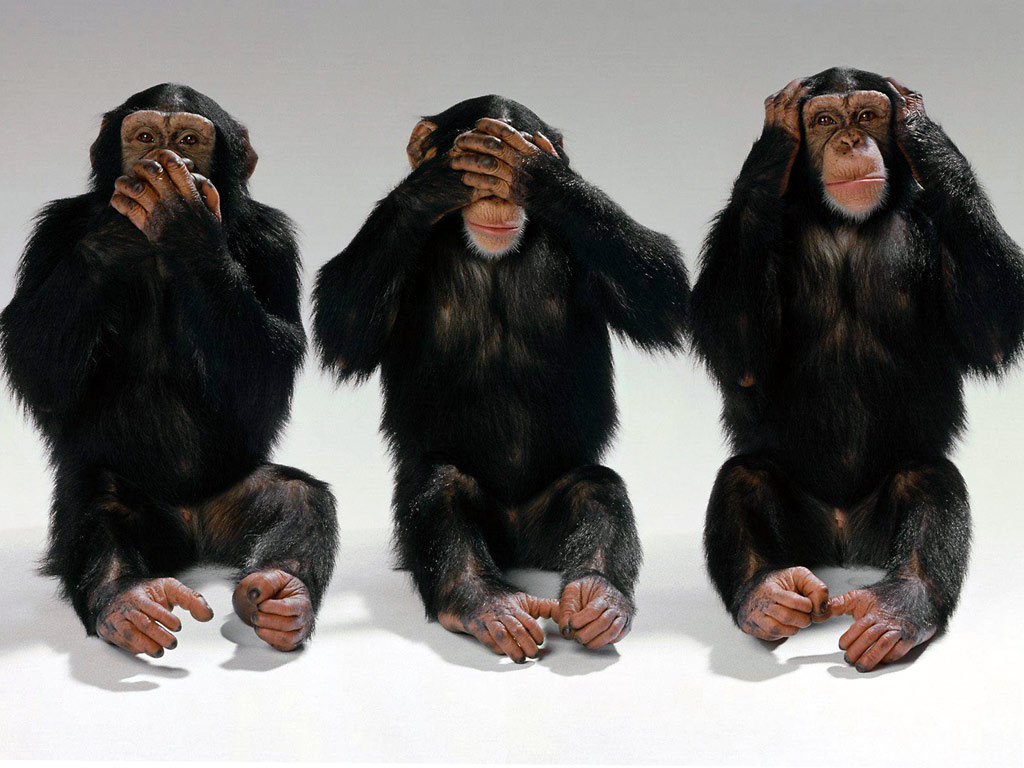 The Tuesday after online pokers “Black Friday” had some other big news in the online gaming industry. The Kahnawake Gaming Commission released a statement regarding their feelings on the sweeping indictments made towards four major online poker rooms. The United States Department of Justice seized online domains from Absolute Poker, UB.com, Full Tilt and PokerStars, not only did they seize domains, they arrested several people and charged them with felony crimes that could land the defendants in prison for 50 years.
The Tuesday after online pokers “Black Friday” had some other big news in the online gaming industry. The Kahnawake Gaming Commission released a statement regarding their feelings on the sweeping indictments made towards four major online poker rooms. The United States Department of Justice seized online domains from Absolute Poker, UB.com, Full Tilt and PokerStars, not only did they seize domains, they arrested several people and charged them with felony crimes that could land the defendants in prison for 50 years. One of the men facing criminal charges stemming from the “Black Friday” online poker indictment didn’t waste any time after he made bail that same day. Chad Elie is facing major criminal charges including fraud, which is being prosecuted by the Federal Trade Commission. He was one of the several arrests made on April 15th, following the online poker crackdown against Full Tilt, PokerStars and Absolute Poker/UB.com.
One of the men facing criminal charges stemming from the “Black Friday” online poker indictment didn’t waste any time after he made bail that same day. Chad Elie is facing major criminal charges including fraud, which is being prosecuted by the Federal Trade Commission. He was one of the several arrests made on April 15th, following the online poker crackdown against Full Tilt, PokerStars and Absolute Poker/UB.com.
 Barney Frank, the Democratic Congressman, let the Obama Administration know how he felt regarding Black Friday and the indictment that led to several arrests and the seizure of four well-known and big names in online poker on April 15th, 2011. He told them in so many words that this indictment and the criminal charges against the founders of these online powerhouses were a waste of the governments time and energy. The persons charged in this case are facing huge prison sentences and multi-million dollar fines.
Barney Frank, the Democratic Congressman, let the Obama Administration know how he felt regarding Black Friday and the indictment that led to several arrests and the seizure of four well-known and big names in online poker on April 15th, 2011. He told them in so many words that this indictment and the criminal charges against the founders of these online powerhouses were a waste of the governments time and energy. The persons charged in this case are facing huge prison sentences and multi-million dollar fines.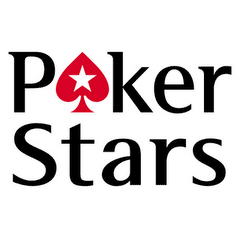
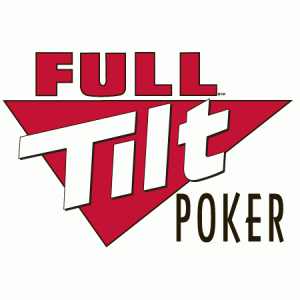 FullTiltPoker.net announced today that Emmitt Smith, the National Football League’s (NFL’s) all-time leading rusher, as the latest “Friend of FullTiltPoker.net”.
FullTiltPoker.net announced today that Emmitt Smith, the National Football League’s (NFL’s) all-time leading rusher, as the latest “Friend of FullTiltPoker.net”.